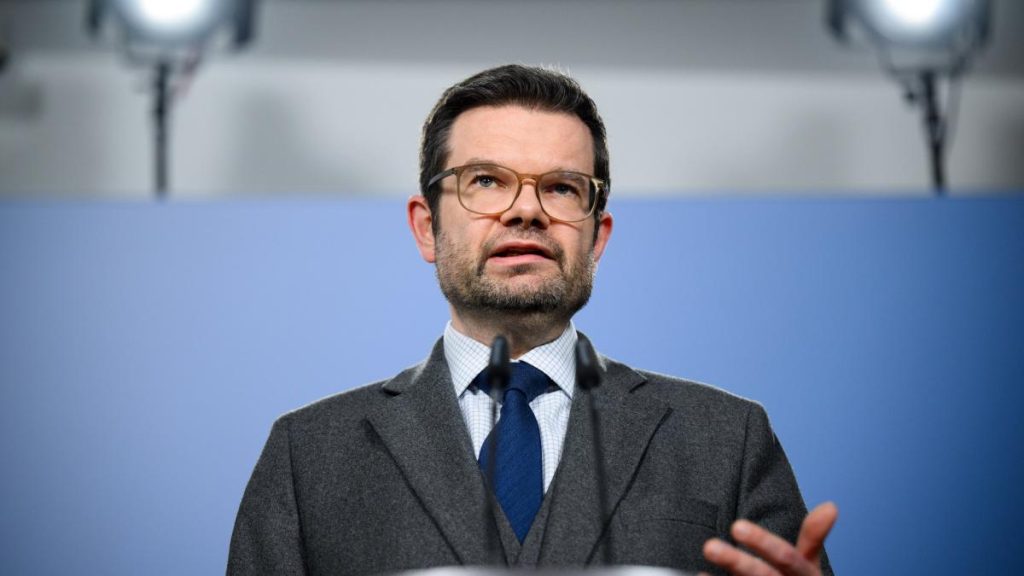The Islamist group “Muslim Interaktiv” is once again allowed to march in Hamburg, accompanied by a large police presence including interpreters and experts from the state security service to monitor any potential violations. This comes after outrage following a recent demonstration where Islamists displayed the slogan “Kalifat ist die Lösung” (Caliphate is the solution). While Federal Minister of Justice Marco Buschmann finds positive statements about the caliphate in Germany absurd, he states that it may not necessarily be a matter for the courts. The Federal Constitutional Court has ruled that expressing absurd opinions, even those conflicting with the Basic Law, is permissible as part of intellectual debate as long as it does not threaten the constitutional order or violate other rights.
However, Buschmann notes that if a terrorist group or extremist organization were to adopt a slogan such as “The caliphate is the solution” as their motto, legal action could be taken against them. In a demonstration on April 27 in Hamburg, signs bearing the slogan were seen, alongside demands for a caliphate as a solution to societal issues in Islamic countries. The group Muslim Interaktiv has announced another demonstration for this Saturday afternoon in Hamburg, subject to strict police regulations. Following the April demonstration, CDU member Christoph de Vries advocated for a change in legislation to allow for the punishment of those publicly calling for the establishment of a caliphate in Germany.
The concept of the caliphate as a form of government dates back to the period after the death of the Islamic prophet Muhammad in 632 AD, with the caliph serving as both a religious and secular leader. Buschmann differentiates the expression of enthusiasm for the caliphate from slogans like “From the river to the sea” used at some pro-Palestinian rallies. This slogan, associated with Hamas, a banned organization, could potentially be considered a use of symbols or propaganda from a prohibited group depending on the circumstances, making it a criminal offense. The complexity of legal interpretation in these cases highlights the importance of balancing freedom of expression with the need to address extremist ideologies and calls for violence.
In response to the upcoming demonstration by Muslim Interaktiv in Hamburg, police are preparing to ensure the safety and security of all parties involved. The allowance for such gatherings, even with controversial slogans, underscores the importance of upholding democratic principles and freedom of assembly while also monitoring potential threats to public safety. Buschmann emphasizes the need for vigilance in differentiating between protected expressions of opinion and actions that incite violence or pose a risk to social order. This ongoing discussion within the legal and political spheres reflects the broader challenges facing societies in addressing extremist ideologies and maintaining social cohesion in diverse communities.
As debates surrounding the legal implications of expressing support for the caliphate continue, the role of law enforcement, government officials, and civil society in safeguarding democratic values while countering extremist narratives remains crucial. The intersection of free speech rights and preventing incitement to violence presents a delicate balance that requires nuanced approaches and ongoing evaluation. By navigating these complexities with a commitment to upholding the rule of law and protecting fundamental rights, Germany seeks to address the challenges posed by extremism and ensure the safety and security of all its citizens. The evolving legal framework and response to extremist activities highlight the need for continued dialogue, cooperation, and vigilance in addressing threats to public safety and social cohesion.


